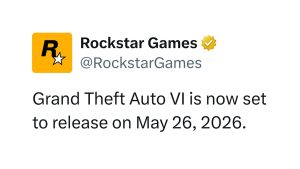In the evolving digital landscape, addiction has taken on new forms. Among the most concerning is digital addiction, particularly among teenagers. This modern-day addiction manifests through excessive use of digital devices, social media, and online games like PUBG and Free Fire. As Bangladesh witnesses a surge in internet usage, especially during the pandemic, the impacts of digital addiction are becoming increasingly apparent.
It addresses important gaming and digital addiction issues, which are highly relevant to the esports community. By posting this, we are raising awareness about the potential risks of excessive gaming and encouraging healthy gaming habits among players.
The Rise of Digital Addiction in Bangladesh
Digital addiction is characterized by an uncontrollable urge to engage with digital technology, leading to mental imbalance and strained relationships. In Bangladesh, the internet has become an integral part of daily life, with over 93 million users. Teenagers, in particular, are drawn to online games and social media, spending countless hours in front of screens. This addiction not only affects their mental health but also undermines their educational and social values.
The popularity of online games like PUBG and Free Fire has soared, with millions of daily players globally. including a significant number in Bangladesh. Unfortunately, this has led to several alarming incidents, including suicides linked to the inability to access these games.
Digital addiction is more than a mere fascination with gadgets; it’s a profound engagement with digital platforms that disrupts the balance of everyday life. It spans three main areas: phone addiction, internet addiction, and social media addiction.
Although digital addiction can affect people of all ages, teenagers are particularly vulnerable. This vulnerability is exacerbated by the widespread use of the internet for educational purposes. Especially during the pandemic when online classes became the norm.
According to various studies, digital addiction has a detrimental effect on human relationships and mental health. Teenagers addicted to digital platforms often exhibit signs of withdrawal, anxiety, and depression when they are away from their devices. The excessive screen time not only affects their mental well-being but also their physical health, contributing to issues like poor posture, eye strain, and disrupted sleep patterns.
Read Also:
The Impact of PUBG and Free Fire
PUBG and Free Fire are more than just games; they are social phenomena. These games have captured the imagination of millions of players worldwide, including a large youth demographic in Bangladesh. PUBG, developed and published by PUBG Corporation, a subsidiary of South Korean video game company Bluehole, is an online multiplayer battle royale game. It draws inspiration from the 2000 Japanese film Battle Royale, offering an intense, survival-based gaming experience. Players parachute onto an island, scavenge for weapons and equipment, and engage in combat until only one player or team remains.
Free Fire, developed by Garena, follows a similar battle royale format and has gained a massive following. These games offer an adrenaline-pumping experience, complete with realistic graphics and competitive gameplay. However, their impact on young minds cannot be overlooked.
Mental Health and Social Consequences
The intense, often violent gameplay of PUBG and Free Fire can desensitize players to violence and disrupt their emotional well-being. Studies have shown that exposure to violent video games can lead to increased aggression and reduced empathy among players. Furthermore, the addictive nature of these games can lead to significant time investment. Which detracts from other important activities such as studying, physical exercise, and social interactions.
In Bangladesh, the impact of these games has been profound. Reports of suicides linked to the inability to access these games highlight the severe consequences of digital addiction. A sixth-grade student, Umme Habiba Barsha, was reported to have passed away in an incident linked to restricted access to Free Fire on her mobile phone. Another case involved a school student named Ripon, who took his own life because he could not afford to buy data to play Free Fire.
These incidents underscore the urgent need to address digital addiction and its devastating effects. According to recent surveys, approximately 17 cases related to video game addiction have been linked to loss of lives in Bangladesh this year. These numbers are alarming and call for immediate action.
The Role of the World Health Organization
The World Health Organization (WHO) has recognized the severity of gaming addiction. In 2018, the WHO included gaming disorder in the 11th revision of the International Classification of Diseases (ICD-11). Identifying it as a mental health problem. This recognition highlights the global concern regarding the harmful effects of excessive gaming. The WHO’s classification provides a framework for diagnosing and treating gaming addiction. Emphasizing the need for comprehensive strategies to combat this issue.
Global and Regional Responses to Gaming Addiction
Several countries have taken proactive measures to address the issue of gaming addiction. India, Nepal, Japan, Iran, and other countries have implemented bans on PUBG and Free Fire. Aiming to protect their youth from the harmful effects of these games. These bans reflect a broader concern about the impact of digital addiction on mental health, social values, and educational performance.
In Bangladesh, despite discussions and criticism, effective measures to control gaming addiction have been challenging to implement. Invisible reasons, such as economic interests and the popularity of these games, have hindered efforts to impose a ban. However, the rising incidents of addiction-related issues and their severe consequences underscore the urgent need for action.
Moving Forward: A Call to Action
Addressing digital addiction requires a multi-faceted approach that involves parents, educators, policymakers, and the community. Parents play a crucial role in monitoring their children’s online activities and promoting healthier alternatives. Encouraging outdoor sports, reading, and participation in cultural and moral education can help steer children away from excessive screen time.
The government can implement stricter regulations on internet-based entertainment and possibly reduce internet speeds to discourage excessive gaming. Additionally, creating awareness about the dangers of digital addiction and providing resources for mental health support are essential steps in combating this issue.
Practical Steps for Parents and Educators
- Set Clear Boundaries: Establish clear rules regarding screen time and ensure children understand the importance of balancing their online activities with other aspects of life.
- Promote Healthy Activities: Encourage participation in physical activities, hobbies, and social interactions that do not involve digital devices.
- Monitor Online Behavior: Keep track of the games and platforms children are engaging with, and discuss the content and potential risks associated with these activities.
- Provide Alternatives: Offer engaging alternatives to screen time, such as books, board games, and family activities that foster creativity and critical thinking.
- Educate About Digital Health: Teach children about the importance of digital health, including taking regular breaks from screens, maintaining good posture, and ensuring proper sleep hygiene.
Government and Community Involvement
- Regulatory Measures: The government can enforce regulations to limit access to addictive games and content, including age restrictions and mandatory breaks for online gaming platforms.
- Awareness Campaigns: Launch campaigns to educate the public about the risks of digital addiction and the importance of balanced digital consumption.
- Mental Health Support: Provide resources and support for individuals struggling with digital addiction, including counseling and treatment programs.
- Encouraging Offline Activities: Create community programs that promote offline activities, such as sports leagues, art classes, and cultural events that engage youth in meaningful ways.
Conclusion
The potential ban on PUBG in Bangladesh reflects a broader concern about the impact of digital addiction on the mental health. By taking proactive steps, we can protect our children and foster a healthier, more balanced digital environment. It’s crucial to unite in our efforts to combat digital addiction, ensuring the success and health of future generations.
Addressing digital addiction is not just a responsibility of parents or the government but a collective effort that involves educators, policymakers, and the community. By working together, we can steer the younger generation away from the pitfalls of digital addiction and towards a brighter, more balanced future.
FAQ
PUBG has been officially unbanned in Bangladesh as of April 16, according to multiple local news sources. Players can now access the game without restrictions. Click here for the latest updates. Bangladesh has no active ban on playing PUBG (PlayerUnknown’s Battlegrounds). Therefore, residents in Bangladesh can currently access and play PUBG without any legal impediments.






